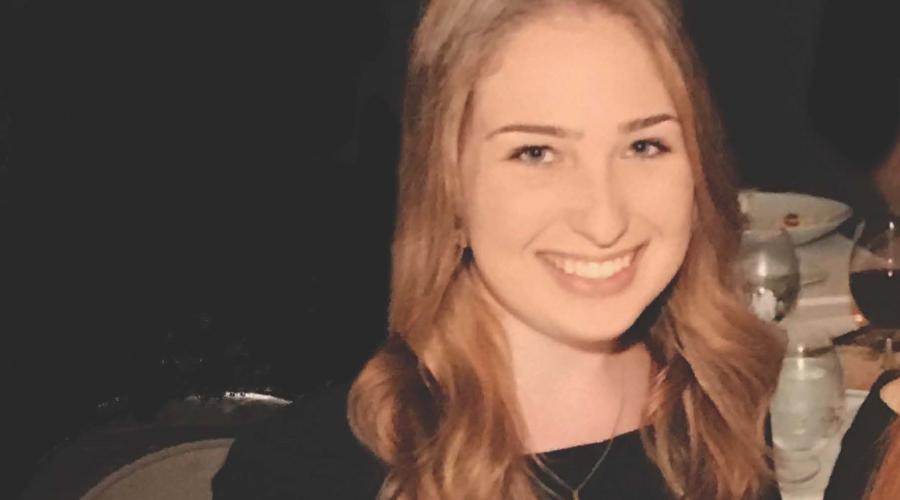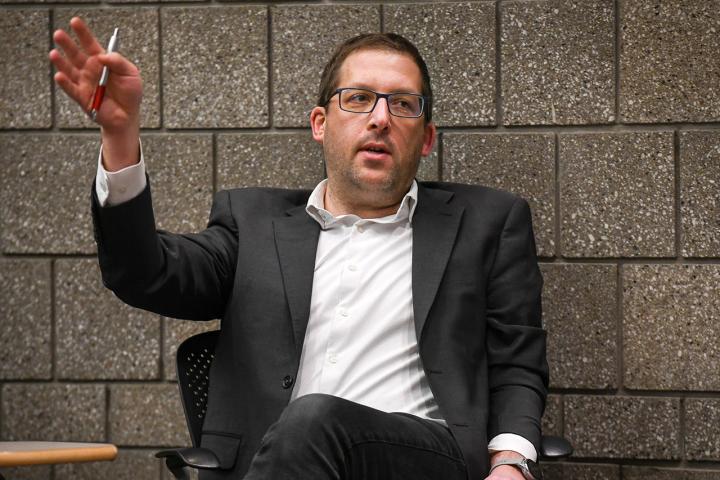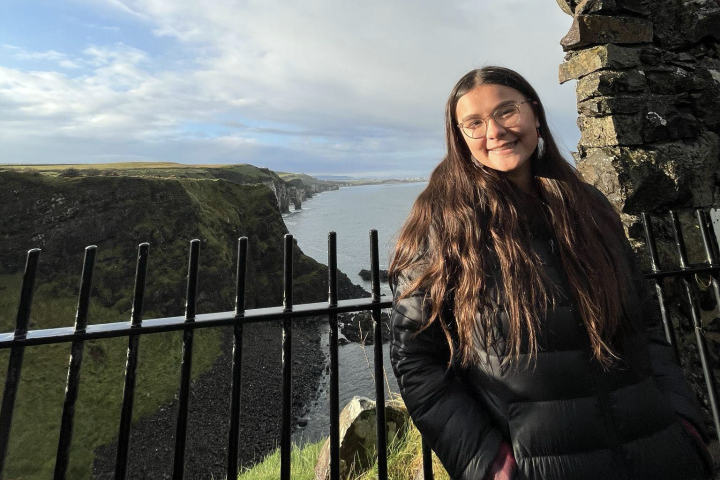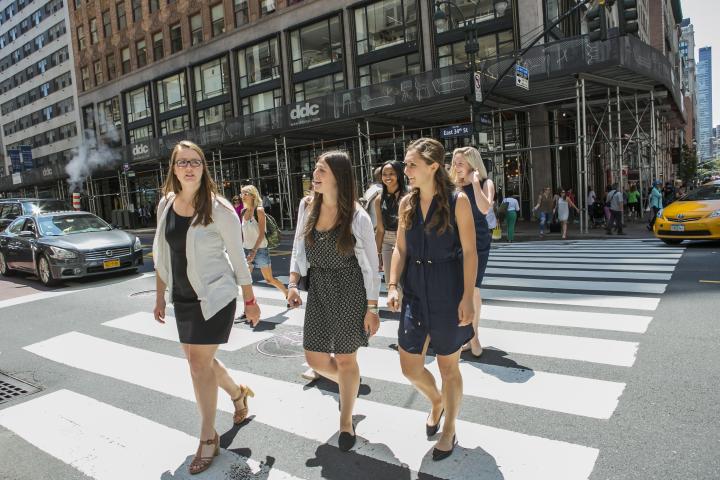
Ziva Posner: Landing Labor Law Jobs with ILR Degree
My name is Michaela "Ziva" Posner, and I'm from Los Angeles. I am an associate with the union-side law firm of Weinberg, Roger & Rosenfeld, representing unions in litigation, administrative hearings, and federal appeals. I graduated from law school at the University of California, Irvine (UCI Law) where I co-founded the Labor and Employment Law Society and started up the Union Grievance Assistance pro bono project. During law school, I served as the Law Student At-Large on the ABA Board of Governors, and the Law Student Liaison to the ABA Section of Labor and Employment Law. The ABA Journal wrote an article on my serving in ABA leadership alongside my father, who is also a labor lawyer.
During my time at ILR, I took the required labor law course with Professor Michael Gold. He teaches his course like a law school class using the Socratic Method, legal research, how to satisfy a prima facie claim or affirmative defense, how to analogize or distinguish previous cases from the present case, and a legal memo due at the end of the semester. It required a lot of hard work, but I learned so much during that one semester. My senior year, I took Employment Discrimination Law with Professor Risa Lieberwitz, which had law school-style exams, a legal memo, and an oral argument. Thanks to the preparation I received in my ILR coursework, my first-year legal writing class in law school was not nearly as daunting for me as it was for many of my classmates.
As an undergraduate, the ILR curriculum helped me land jobs at the National Labor Relations Board (NLRB) and the Los Angeles City Attorney's Office, both of which demanded legal research and analytical skills. My courses from ILR also helped me in a summer job as a judicial clerk for an administrative judge at the Los Angeles office of the Equal Employment Opportunity Commission (EEOC) after my first year of law school.
A lot of my classmates ask me why I’ve gone go into labor law. The fact is that people care a lot about their work- it is not just a livelihood, but an identity. When something happens at work, the implications spill over into other aspects of a worker’s life. Employers will always be able to pay for high-power attorneys, so workers need access to attorneys who are dedicated to protecting their rights and willing to go up against an employer to enforce the protections the law provides.
In law school, my familiarity with private sector labor-law provided a great foundation for understanding California public sector labor law. I wrote the closing brief on behalf of a firefighter’s union for their case before the California Public Employment Relations Board, which we ended up winning. My ILR foundation also enabled me to participate in pro bono opportunities assisting low-income workers in Orange County, helping Unite-Here Local 11 arbitrations and a Labor Commissioner telephonic hearing resulting in an award of over $7,000 for the client. All of these experiences, plus the ILR degree, were essential components that enabled me to work for my firm during the summer of 2020 and during my last year of school.


